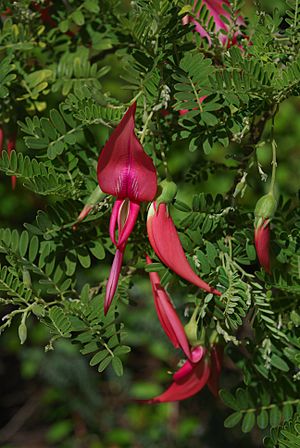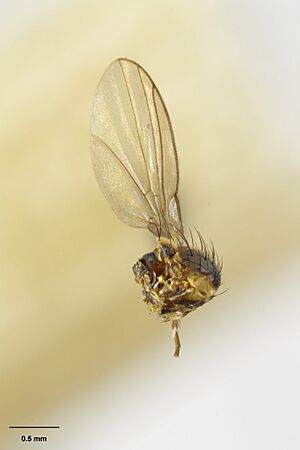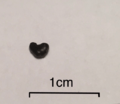Clianthus puniceus facts for kids
Quick facts for kids Clianthus puniceus |
|
|---|---|
 |
|
| leaves and flowers | |
| Conservation status | |
 Nationally Critical (NZ TCS) |
|
| Scientific classification |
|
| Kingdom: | Plantae |
| Clade: | Tracheophytes |
| Clade: | Angiosperms |
| Clade: | Eudicots |
| Clade: | Rosids |
| Order: | Fabales |
| Family: | Fabaceae |
| Genus: | Clianthus |
| Species: |
C. puniceus
|
| Binomial name | |
| Clianthus puniceus (G.Don) Sol. ex Lindl.
|
|
| Script error: The function "autoWithCaption" does not exist. | |
Script error: No such module "Check for conflicting parameters".
The Clianthus puniceus, often called the kaka beak or Kōwhai Ngutu-kākā in Māori, is a beautiful species of flowering plant. It belongs to the Fabaceae family, also known as the pea family. This special plant is native to New Zealand's North Island.
Contents
What is the Kaka Beak Plant?
The kaka beak plant, Clianthus puniceus, is an evergreen shrub. This means it keeps its leaves all year round. It is one of two types of Clianthus plants. Both types have amazing clusters of red flowers. These flowers look a lot like the beak of the kākā, which is a native New Zealand parrot. Because of this, the plant is also known as parrot's beak, parrot's bill, or lobster claw. There is also a type of kaka beak with white or creamy coloured flowers.
How Big Does it Grow?
This plant usually grows to about 2 meters (about 6.5 feet) high. It has branches that spread out. Its leaf stalks can be up to 15 centimeters (about 6 inches) long. These stalks hold several pairs of small leaflets.
When Does it Flower?
Kaka beak plants usually flower from spring to early summer. However, they can sometimes flower twice a year. Some even flower all year round! This plant can be trained to grow against a wall. It needs protection from frost to grow well.
What Does its Name Mean?
The second part of its scientific name, puniceus, is a Latin word. It refers to the reddish-purple color of its flowers.
Pests and Tiny Visitors
The Clianthus puniceus plant is home to a special fly. This fly is called Liriomyza clianthi. It is a leaf mining fly, which means its larvae live inside the leaves. This fly is found only in New Zealand.
Protecting the Kaka Beak
Is it Endangered?
The Clianthus puniceus is very rare in the wild. It is known as "critically endangered." This means there are very few of these plants left in their natural home. They are only found on Moturemu Island in the Kaipara Harbour.
Where Can You Find it?
In New Zealand, this plant used to be a popular garden plant. But now, a stronger type called Clianthus maximus is usually grown instead. However, the Clianthus puniceus is grown in the United Kingdom. There, it has led to several new types of garden plants. Both the original species and a special type called ‘Roseus’ have won an award. This award is called the Royal Horticultural Society’s Award of Garden Merit. It was confirmed in 2017.
Gallery
See also
 In Spanish: Kakabeak para niños
In Spanish: Kakabeak para niños
 | John T. Biggers |
 | Thomas Blackshear |
 | Mark Bradford |
 | Beverly Buchanan |



